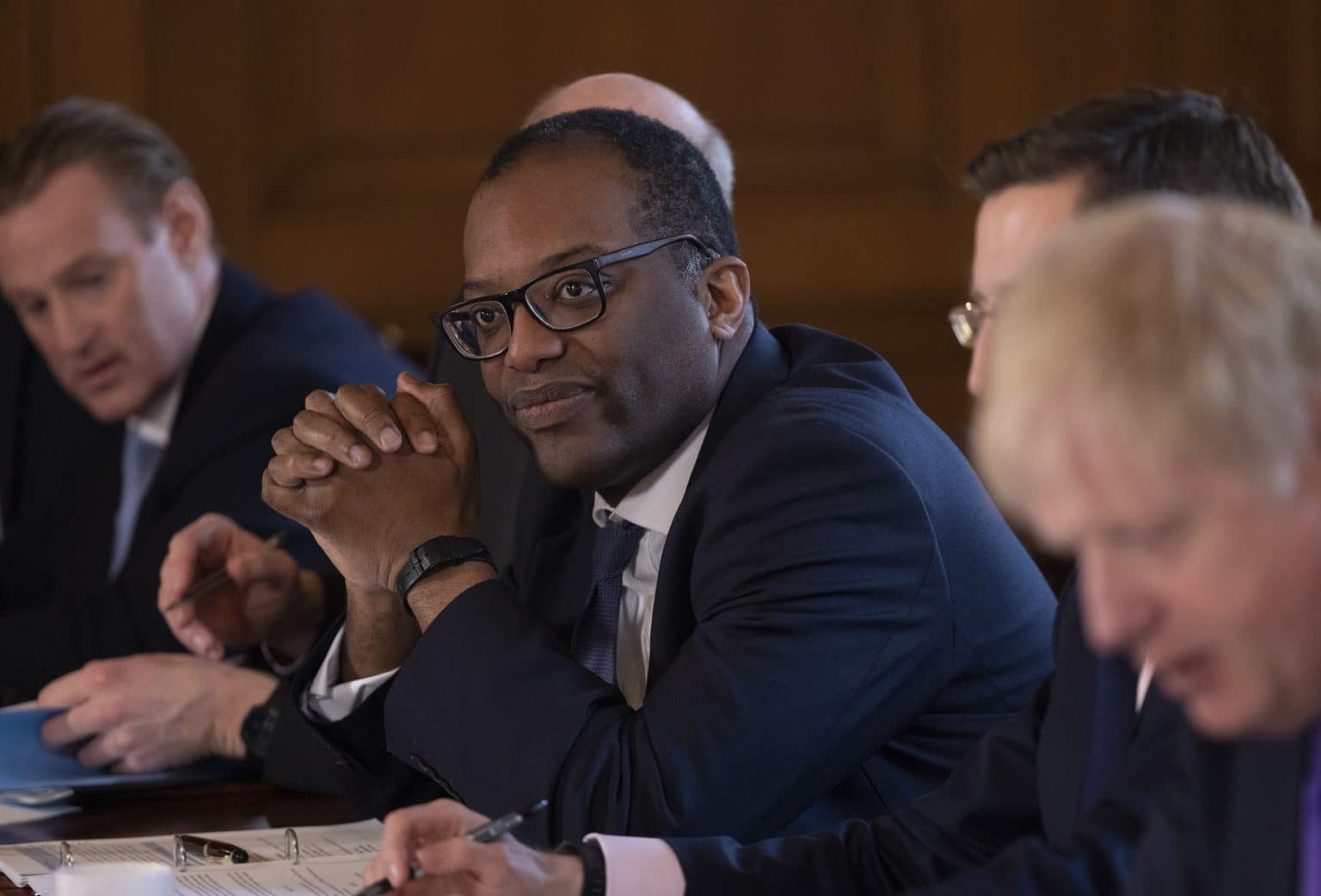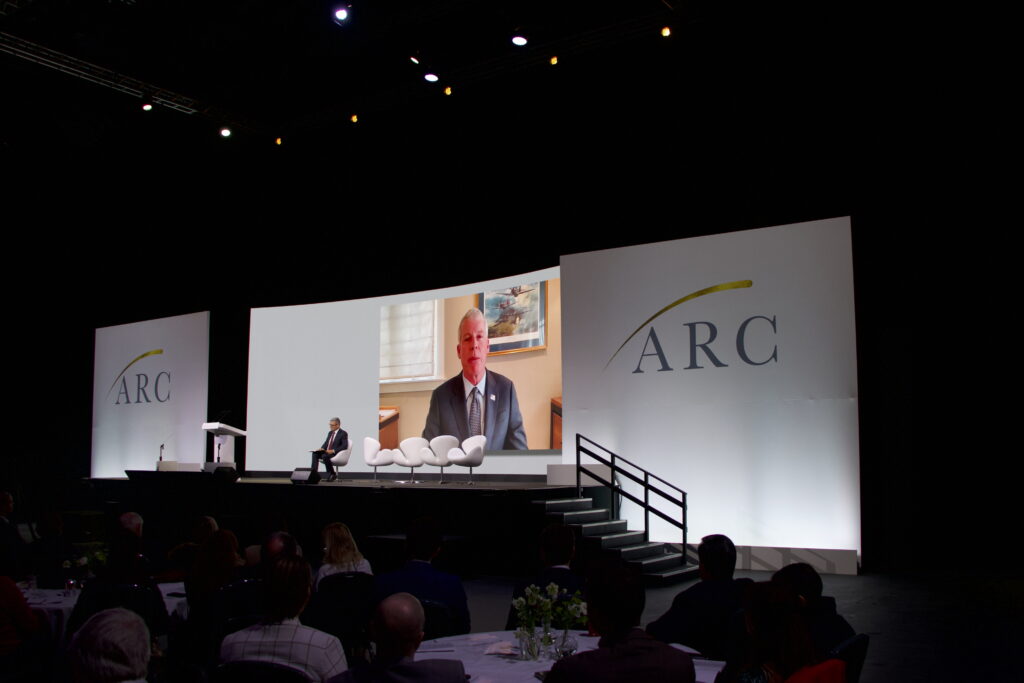The UK government has been accused of appointing a “cheerleader for climate-wrecking blue hydrogen” as its hydrogen champion while claiming to support clean energy.
Jane Toogood was named as the new “hydrogen champion” by Business Secretary Kwasi Kwarteng in July and will liaise between industry and government to “accelerate hydrogen production” to help the country reach its net zero goal.
However, Toogood is a chief executive at Johnson Matthey, a FTSE 250 multinational which markets technology that can produce blue hydrogen “from natural gas at scale”.
Blue hydrogen has been marketed as a climate-friendly fuel since the production process aims to capture most of the associated carbon dioxide (CO2) emissions. But climate campaigners warn the impact of methane leaks could negate any benefits from the as-yet unproven technology.
Green hydrogen is regarded as much friendlier to the climate since it is produced using wind and solar energy and does not emit CO2.
Toogood’s appointment was criticised by campaigners who argue that fossil fuel companies are lobbying governments to embrace blue hydrogen to guarantee future demand for natural gas.
“Appointing a cheerleader for climate-wrecking blue hydrogen, aka fossil hydrogen, as its ‘hydrogen champion’ is another irrefutable example of the fact that the UK government is backing blue hydrogen all the way”, said Dominic Eagleton, senior gas campaigner at advocacy group Global Witness.
“Blue hydrogen is simply another way for the gas industry to carry on polluting, hidden behind hydrogen greenwashing.”
Blue Hydrogen Interest
Toogood’s appointment comes as a spike in global gas prices, boosted by Russia’s invasion of Ukraine, has sparked a debate about how to source cheap and reliable energy.
The government’s hydrogen strategy published last summer – which aims for hydrogen to cover up to 35 percent of the UK’s energy consumption by 2050 – includes “twin track” support for both blue and green hydrogen, an approach it claims will attract £900 billion in private investment.
The independent Climate Change Committee has supported this approach, saying a “blue hydrogen bridge” can help achieve net zero, though this position has been criticised by climate campaigners.
Johnson Matthey’s website says: “Manufacturing blue hydrogen at scale is an essential early step in reducing global carbon dioxide emissions, enabling the planet to achieve net zero emissions.”
It adds: “Our innovative LCH™ [low carbon hydrogen] technology is ready to go and allows for high purity and clean hydrogen to be produced from natural gas at scale.”
The company also offers green hydrogen, but markets it as a technology of the future, noting that while creating no carbon emissions, “green hydrogen is more expensive to produce than gray or blue hydrogen today”.
Johnson Matthey declined to comment and said Toogood was unavailable for comment. BEIS defended the decision to appoint Toogood and clarified to DeSmog that she would play no role in distributing government funds.
A BEIS spokesperson said: “Independent reports and advice including that from the Climate Change Committee show that a combination of blue and green hydrogen is consistent with our net zero goals.
“As our Hydrogen Champion, Jane Toogood has a vital role in ensuring industry and government are aligned to accelerate hydrogen production as a clean, home grown energy source – boosting our energy security and creating jobs.”
BEIS told DeSmog it sees blue and green hydrogen as complementary and that backing blue will drive investment and confidence in hydrogen. The department also noted that Johnson Matthey offers both types of hydrogen.
‘Dirty Hydrogen’
Adrian Ramsay, co-leader of the Green Party, said: “This is a typical government move to try and make it look as if they are making some kind of positive shift away from fossil fuels, when in fact the reality is nothing of the kind.
“Creating dirty hydrogen from fossil fuels doesn’t help make any progress towards net zero and instead takes investment away from actual sustainable energy options.”
Toogood co-chairs the government’s ‘Hydrogen Advisory Council’ alongside Kwarteng and Sinead Lynch, UK chair of oil and gas giant Shell.
Johnson Matthey sponsors the All-Party Parliamentary Group (APPG) on Hydrogen, which has supported the government’s “twin track” approach of backing both green and blue hydrogen. Companies including Johnson Matthey, Shell and Equinor spent around £70,000 on the APPG in February via a PR company called Connect, according to the most recent register.
Ami McCarthy, political campaigner for Greenpeace UK, said: “Blue hydrogen is a favourite of the fossil fuel sector because it keeps them in business while they’re able to trumpet so-called ‘low carbon’ solutions which haven’t been proven and don’t tackle emissions that come from gas production.
“The only solutions that are going to help us – with our bills or with the climate crisis – are ‘no carbon’ industries like wind and solar”, she added. “So it’s time to stop cheerleading industries that are going to make things worse for UK households and for the Global South, where the climate crisis is already wreaking havoc.”
Subscribe to our newsletter
Stay up to date with DeSmog news and alerts







